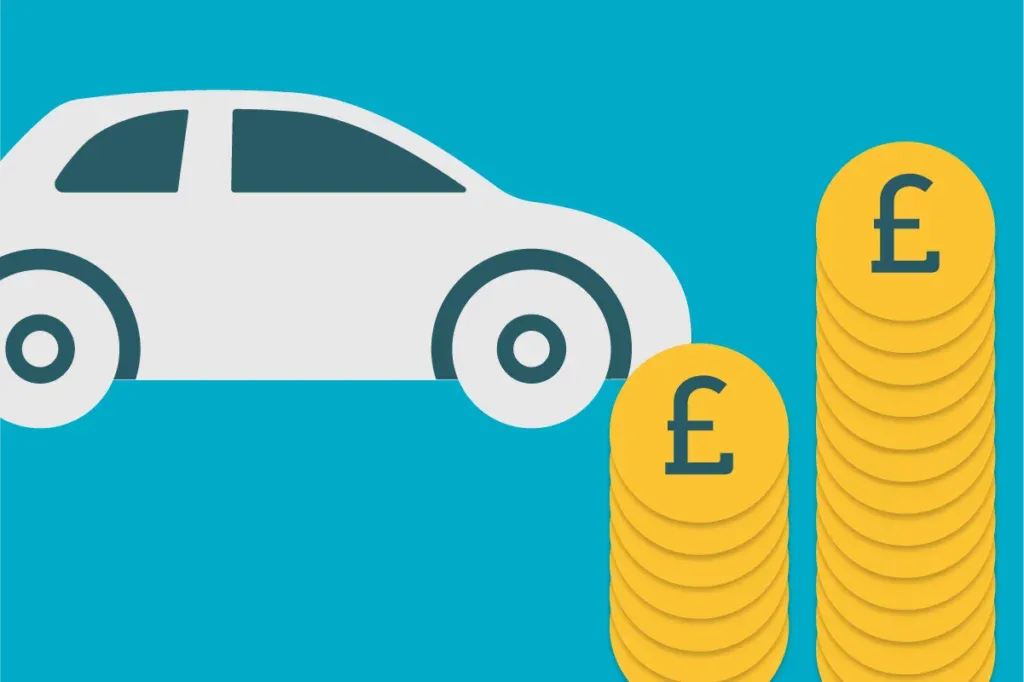One of the many benefits that a business may offer its employees is a car allowance. This is a fixed amount of money given to an employee to cover the costs associated with using their own personal car for business purposes. This post explores what a car allowance is, how it works, and the tax implications of offering this benefit to company employees.
What Is a Car Allowance?
A car allowance is a fixed amount of money that an employer pays to an employee to cover the costs of using their personal vehicle for business purposes. The purpose of a car allowance is to compensate employees for the expenses they incur while using their own car for work-related activities, such as driving to and from meetings, visiting clients, or running business errands.

How Does a Car Allowance Work?
Company car allowances are typically paid monthly, and the amount can vary, depending on the employer’s policies and the employee’s job status or responsibilities. Some companies may offer a flat rate to all employees, while others may provide a higher allowance to employees who need to travel more frequently or cover greater distances. The allowance may also vary depending on the type of vehicle the employee drives or the fuel efficiency of the said car.
It is important to note that a car allowance is not the same as a company car. With a company car, the employer provides the vehicle for the employee’s use, subjecting the employee to company car tax, whereas with a car allowance, the employee uses their own vehicle and is reimbursed for the costs associated with using it for business purposes.
Is Car Allowance Taxable?
Car allowances are subject to tax, both for the employer and the employee. The employer must pay National Insurance contributions on the amount of the car allowance, and the employee must pay income tax on the allowance as part of their taxable income.
If an employee uses their car for both business and personal use, the car allowance will only be taxable on the portion of mileage that is for business purposes. To calculate this, the employee must keep a log of their mileage and provide it to their employer. The employer can then use this information to calculate the portion of the car allowance that is taxable.
It’s worth noting that there are some exemptions to the tax rules surrounding car allowances. For example, if an employer provides an electric car charging point for an employee’s use, this will not be subject to tax. Employees can also claim tax relief on the use of their vehicles for work purposes.
Company Car vs Car Allowance
When deciding whether to offer a car allowance or a company car, there are a few factors to consider. A company car, regulated by the company car policy, can be an attractive benefit for employees, as it provides them with a vehicle to use for both business and personal use. However, company cars are typically more expensive for the employer to provide, as they must cover the cost of purchasing and maintaining the vehicle.
A car allowance, on the other hand, is generally more cost-effective for employers. This is because they are only responsible for reimbursing the employee for the costs associated with using their own car. However, employees may prefer a company car since they do not have to worry about the costs of owning and maintaining their own vehicle.
What Does a 5K Car Allowance Get You?
The amount of money that a £5,000 car allowance equates to will depend on a number of factors, including the cost of fuel, the type of vehicle being driven, and how often the vehicle is used for business purposes. As a general rule, a £5,000 car allowance will likely cover the majority of costs associated with using a personal car for work-related activities.
What Is a Reasonable Car Allowance in the UK?
There is no set amount for a reasonable car allowance in the UK, as the amount will depend on a number of factors. These include factors such as the employee’s job responsibilities and the cost of living in the area they work. It’s also worth noting that some companies may offer a higher car allowance to employees who have to travel farther distances or must use their car more frequently for business purposes. Similarly, companies in higher-cost areas may offer higher car allowances to compensate for the higher cost of living.
Conclusion
Car allowances are a popular benefit that many businesses offer to their employees. By providing a fixed amount of money to cover the costs associated with using their own vehicle for business purposes, employers can help their employees save money and ensure that they can carry out their job responsibilities effectively. However, it’s important for both employers and employees to understand the tax implications of car allowances and to ensure that they follow the rules and regulations set out by HM Revenue & Customs.
Sources:
Disclaimer
This content is provided for informational purposes only and is not meant to be an endorsement or representation by FleetGO.com or any other party. This information may contain inaccuracies or typographical errors, despite our efforts to ensure accuracy. FleetGO.com accepts no responsibility or liability for any errors or omissions, and is not responsible for the contents of any linked website or any link contained in a linked website. Please refer to our full disclaimer for more details.


